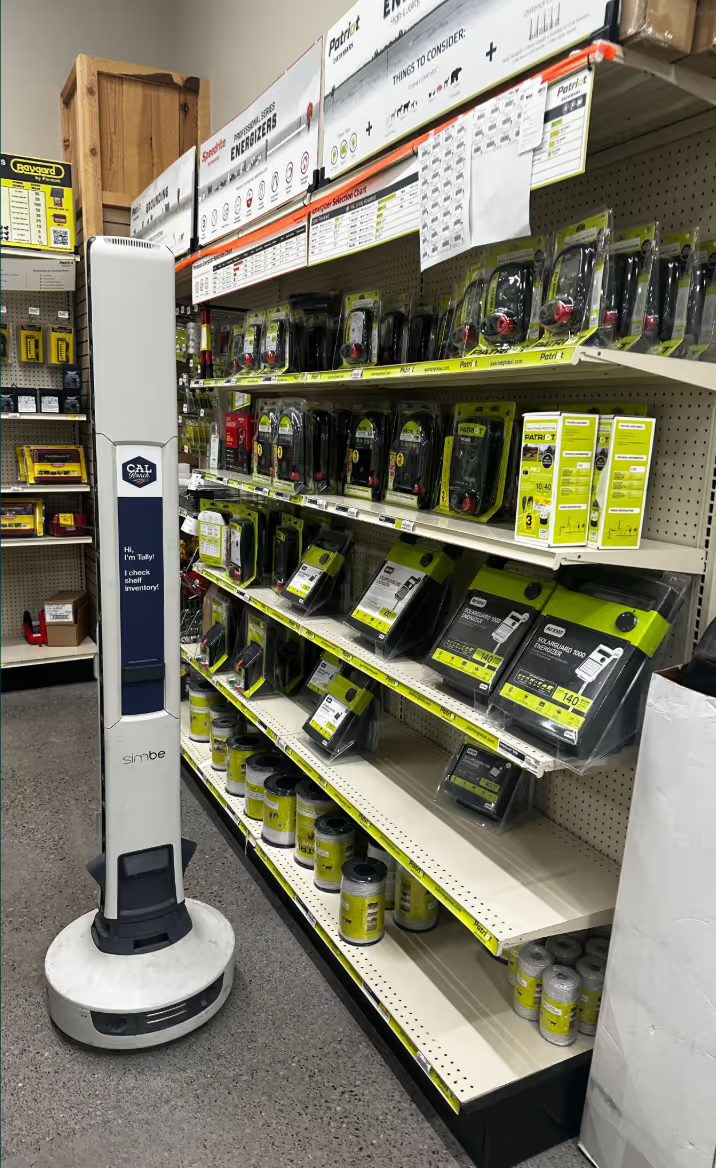
How Robotics and AI Are Driving the Next Era of Efficiency and Profitability
For decades, dealership fixed operations have relied on the same three pillars — people, parts, and process. But a new layer of intelligence is emerging: robotics and AI systems that not only automate repetitive tasks but actually enhance how teams think, act, and perform.
These technologies are no longer futuristic experiments. They’re working now — driving measurable improvements in productivity, accuracy, and customer satisfaction for early adopters. In 2026, they’ll become the competitive edge separating top-performing dealerships from the rest.
When I acquired four powersports dealerships a few years ago, I expected to modernize marketing and upgrade service operations. What I didn’t expect was how broken the parts departments were.
Inventory accuracy hovered around 65%. Fast-moving parts were missing, dead stock filled shelves, and tracking systems were inconsistent. We literally hauled parts to a dumpster just to start fresh.
What I learned: inaccurate inventory isn’t just inconvenient — it’s a profit killer. Every missing SKU means a lost sale or a delayed repair. Every obsolete item sitting in a drawer is trapped cash that can’t turn. Technology gives us the tools to finally solve that problem — permanently.
In late 2024, Automotive News profiled Mercedes-Benz of Plano, Texas, where two parts-delivery robots — “Rosey” and “M2-B2” — transformed a massive service department.
In just a few months:
The principle is simple: every step a technician takes to the parts counter costs time and money. A bot that makes 50 deliveries a day effectively adds billable hours back to the schedule.
For powersports and marine stores — where bays are smaller and techs multitask — the impact is even more dramatic. Installation takes half a day; training takes minutes. The ROI starts almost immediately.
“Every step a technician doesn’t take to the counter is a step toward profit.”
Most parts and accessories advisors are great at taking orders — but few get the training to sell solutions or deliver exceptional customer experiences. That’s where Herohub’s DealerAI Virtual Sales Coach comes in.
It uses realistic AI simulations to let staff practice real-world interactions — presenting promotions, handling objections, or recommending upgrades — and then provides immediate scoring and coaching.
Dealers who adopt AI-driven coaching are seeing measurable gains in sales confidence, upsell performance, and customer satisfaction. But the biggest advantage isn’t just sales numbers — it’s culture.
They’re building a culture of continuous skill development that scales across the entire organization.
In 2026, the dealerships that invest in elevating people — pairing human expertise with AI-powered feedback — will widen the performance gap between average and exceptional.
“AI coaching isn’t a future standard — it’s the next great differentiator between average dealerships and elite ones.”
Earlier this year, I walked into a local farm and ranch supply store and saw something remarkable: a Simbe “Tally” robot slowly navigating every aisle, scanning shelves. It was performing a full inventory audit — autonomously.
The general manager told me that every morning, the system produces a daily inventory adjustment report showing:
He said it was like having an employee who never sleeps, never misses a count, and always delivers a report before opening time.
Inspired by those possibilities, Herohub began exploring how AI could turn dealership inventory data into actionable insight.
By combining two years of sales history, part performance, and supplier lead times, AI can now identify:
Instead of static spreadsheets, dealers receive a financial intelligence report showing where capital is trapped — and how to redeploy it for maximum ROI.
Think of it as a CFO for your parts department — spotting inefficiencies, forecasting demand, and making recommendations in real time.
Simbe Robotics’ “Tally” platform, already used by major retailers like Best Buy and Schnucks, is now making its way into specialty and powersports dealerships.
It autonomously scans shelves, reads barcodes, and checks planogram compliance — delivering 98% inventory accuracy.
The result?
The days of painful cycle counts and year-end surprises — realizing your inventory shrank 10% and wondering where $150,000 went — will soon be history.
Autonomous daily counts mean dealership teams can spend more time serving customers and less time counting parts.
The next evolution of fixed operations isn’t about replacing people — it’s about amplifying them.
Together, they create a smarter, faster, more profitable dealership — one where technology handles the repetitive work, and people focus on relationships, service, and growth.
Dealerships that embrace these tools early won’t just run more efficiently. They’ll outperform — widening the gap through better execution, sharper insights, and elevated customer experiences.
If you’re ready to explore what’s next for fixed ops and want to be part of the pilot group leading the way, message Jared at jared.burt@herohub.com